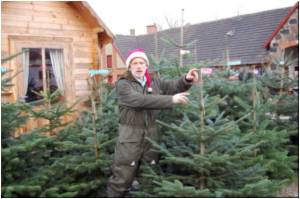It has been a dull Christmas for Sandra, ever since she lost her job at a US childcare center almost three years ago.

The red and green china on a small table in the living room stand idly stacked, as if realizing they are not being readied for a special occasion.
A faded plastic Santa Claus smiles wanly at the few passersby that venture down Sandra's suburban street in the US state of Maryland.
Two weeks before Christmas, there is no Christmas tree inside the house, no wreath on the door.
Sandra is just one of millions of Americans who are unemployed or underemployed, and facing another holiday season of belt-tightening and bleakness.
Ten percent of the US workforce is out of a job, and one in six workers is underemployed, meaning they don't work enough hours to make a living wage.
Advertisement
"I don't have any extra money. I'm not sure what I'm going to do. I'll probably tell everybody, 'Why don't we wait until after Christmas and the sales?' But there's no frills, absolutely no frills," said the 66-year-old mother of five, one of whom, a teenaged daughter, is still in high school.
Advertisement
Marcus worked on political campaigns before he came down in 2006 with sarcoidosis, an inflammatory disease which caused clumps of cells to grow in his lungs. The illness sent him to hospital for several months and eventually cost him his home and his job.
After sleeping on friends' sofas, he ended up on the streets, and has spent the past few Christmases in shelters.
"City shelters are horrible, but they go out of their way to make a homey environment for the holidays," he said.
This year, for the first time in a long time, he's looking forward to celebrating Christmas with his housemates. He's also hoping to go back to school and get another job, even if he is still dealing with the lingering effects of his illness.
As shoppers in malls decorated with twinkling Christmas lights bustled back to their cars with department store bags bulging with gifts, Jamene Johnson and her children pushed two boxes of food out of Manna Food Center, tucked into a corner of an unglamorous industrial site in Gaithersburg.
In among the canned goods, pasta, the American favorite macaroni and cheese, rice, mashed potatoes in one box, and meat, fruit, vegetables and juice in another, Manna had also thought of Christmas dinner for the family of three.
"They gave me a roast -- a small roast," Johnson told AFP.
"Along with my food stamps, this should last through the month. You have to make it stretch through the month," said Johnson, who was forced to flee a violent home in Baltimore five years ago.
Manna development manager Natalie Corbin said that while there was talk of the economy gathering speed again as shoppers spent record amounts of money in the pre-Christmas sales, record numbers of needy people have come to the food center this year to collect their two boxes of provisions a month.
In 2008, as the US economy tanked, Manna served 80,000 people. This year, as unemployment peaked, it has served 150,000.
But despite the gloom and tough times, at Sandra's home in the town of Rockville, 17-year-old Kathleen was looking forward to Christmas.
A gifted student in her final year of high school, Kathleen works five days a week in a restaurant to make money to help out her mother and, hopefully, to pay for university studies.
This year, she plans to use her tip money to buy gifts for her mum, who, out of earshot from Kathleen, told AFP how she struggles with the idea that she can't do the same for her daughter, four sons and grandchildren.
"You've worked all your life and you've raised your family and you always think you're going to get to the point where you can enjoy your family and your grandchildren and be what I've always wanted to be -- a giver," she said.
"I don't want to take from people but on the other hand it's a question of will I have heat? Will I have housing? And when child support stops, what will I become?
"I don't want to be on the streets but at some point, it's going to be that," she said.
Source-AFP














